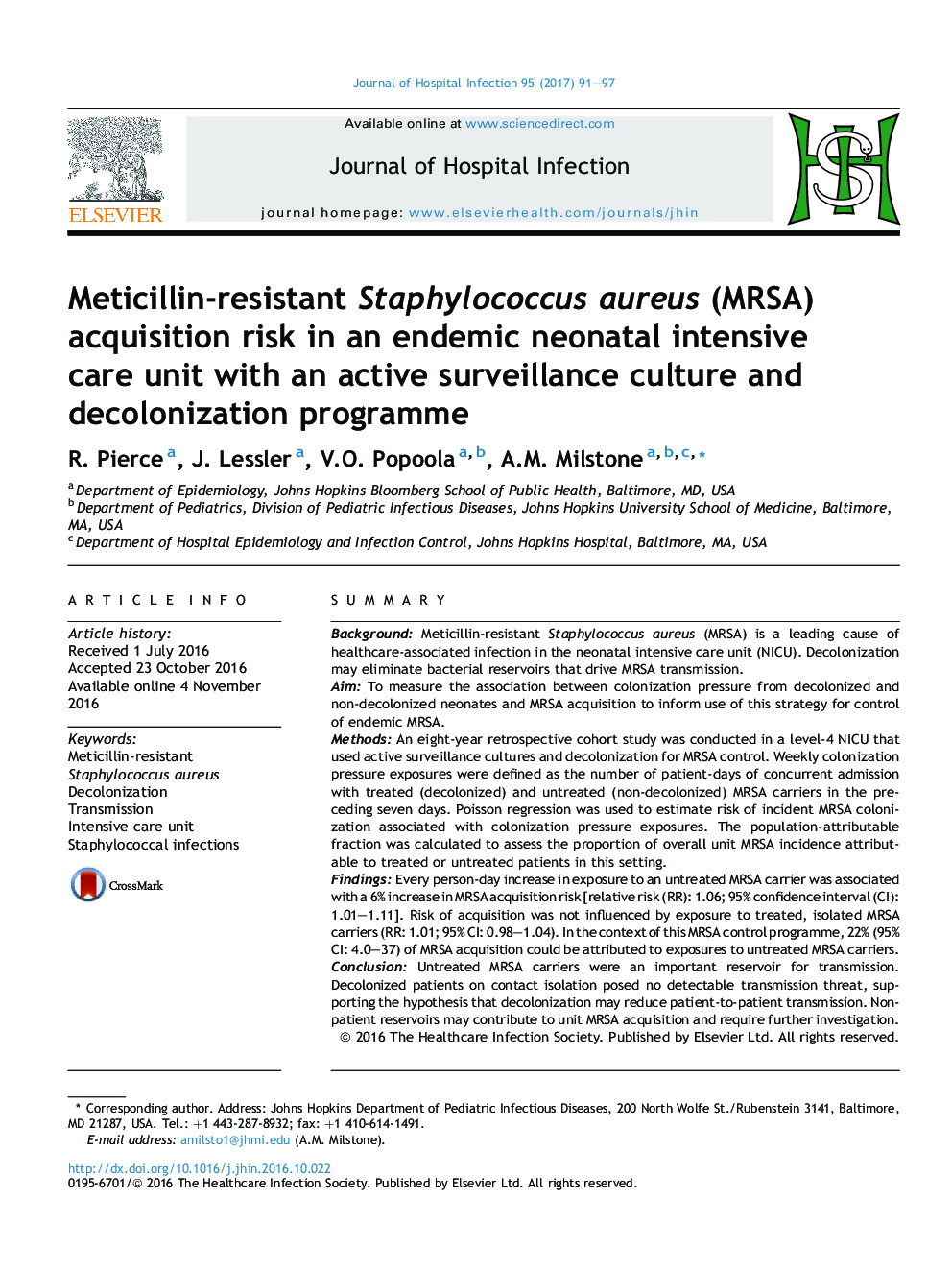| Article ID | Journal | Published Year | Pages | File Type |
|---|---|---|---|---|
| 5668423 | Journal of Hospital Infection | 2017 | 7 Pages |
SummaryBackgroundMeticillin-resistant Staphylococcus aureus (MRSA) is a leading cause of healthcare-associated infection in the neonatal intensive care unit (NICU). Decolonization may eliminate bacterial reservoirs that drive MRSA transmission.AimTo measure the association between colonization pressure from decolonized and non-decolonized neonates and MRSA acquisition to inform use of this strategy for control of endemic MRSA.MethodsAn eight-year retrospective cohort study was conducted in a level-4 NICU that used active surveillance cultures and decolonization for MRSA control. Weekly colonization pressure exposures were defined as the number of patient-days of concurrent admission with treated (decolonized) and untreated (non-decolonized) MRSA carriers in the preceding seven days. Poisson regression was used to estimate risk of incident MRSA colonization associated with colonization pressure exposures. The population-attributable fraction was calculated to assess the proportion of overall unit MRSA incidence attributable to treated or untreated patients in this setting.FindingsEvery person-day increase in exposure to an untreated MRSA carrier was associated with a 6% increase in MRSA acquisition risk [relative risk (RR): 1.06; 95% confidence interval (CI): 1.01-1.11]. Risk of acquisition was not influenced by exposure to treated, isolated MRSA carriers (RR: 1.01; 95% CI: 0.98-1.04). In the context of this MRSA control programme, 22% (95% CI: 4.0-37) of MRSA acquisition could be attributed to exposures to untreated MRSA carriers.ConclusionUntreated MRSA carriers were an important reservoir for transmission. Decolonized patients on contact isolation posed no detectable transmission threat, supporting the hypothesis that decolonization may reduce patient-to-patient transmission. Non-patient reservoirs may contribute to unit MRSA acquisition and require further investigation.
